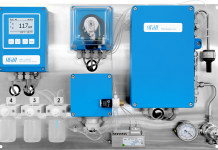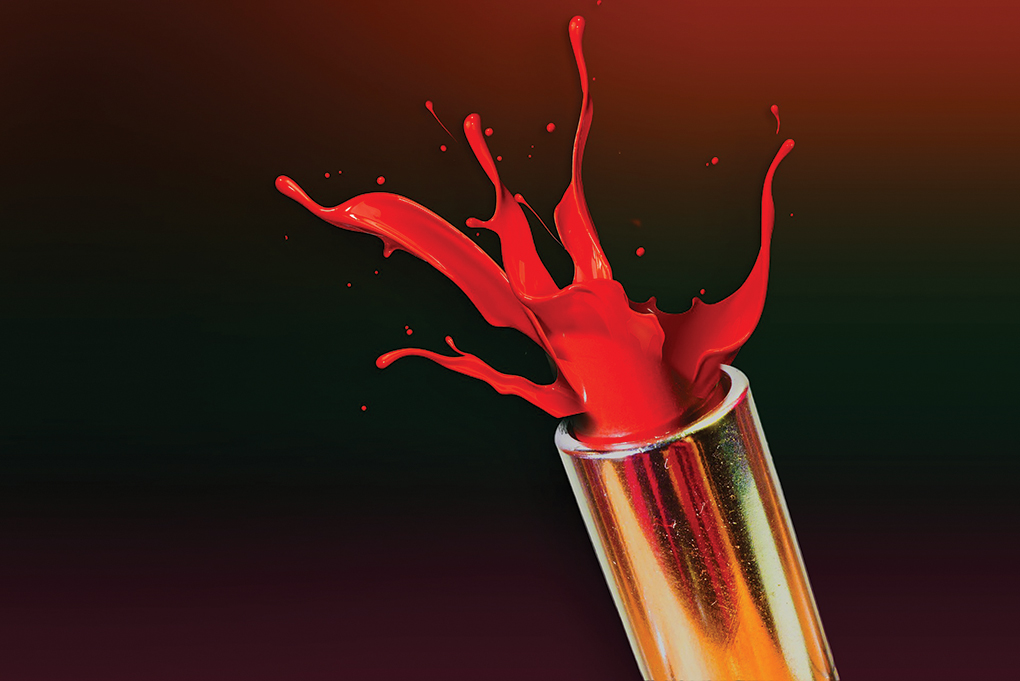The global demand for polyisobutylenes (PIB) was estimated at ca. USD $4.33bn (1 million tonnes) in 2015 and is predicted to grow to $7.71 bn (1.8 million tonnes) by 2024. Due to their unique set of properties, the demand for these versatile polymers is spread across multiple industries. This diversity of markets and commercial uses contributes to the healthy outlook for these uniquely adapted products.
Low molecular weight PIBs are used as base oils in the manufacture of synthetic lubricants for their unique properties of good high temperature performance, clean burn-off, and being food safe. In cosmetics and personal care, they are widely used for their lipid thickening properties in lipstick, for the soft appearance and surface binding that they give to eye & face make up, and for their emollient properties in sun creams and skin care products. They are also used as the primary carrier in many caulks and sealants, due to their tackiness, ageing stability, and permanent pliability. They are also used as extenders in adhesives.
Medium and high molecular weight PIBs are used in adhesives for their plasticising and tacky properties. When PIB is added to linear low density polyethylene, these properties also improve the cling, tear resistance, and low temperature flexibility of cling film. Similarly, these polymers are used as plastics, resins and rubber modifiers for improved flexibility, impact strength and tear resistance; their inherent electrical insulation properties mean that they are frequently used in wire manufacture. They have even been used to improve the cold crack resistance of asphalt road surfaces. Medium molecular weight PIBs are increasingly used for food and beverage packaging for their adhesive nature, hydrophobic stability, food safe status, and antibacterial performance.
Over the years, an occasional challenge for users of PIBs has been maintaining continuity of supply. However, some suppliers, such as Brad-Chem Ltd, can now supply all molecular weights and ensure ongoing supply chain security and quality to the UK and Ireland market.
Christopher Brady, Managing Director of Brad-Chem Ltd, explains, “Globally, the polyisobutene market is predicted to continue to grow by around 6.1% per year for the next 6 years. We have recently extended our portfolio to cover the full range of PIBs. We have also secured all of the necessary supply chain safeguards to ensure that we can meet that increased demand for UK and Ireland customers. Our long established excellent reputation for quality and reliability of supply, customer service, and highly qualified technical support all mean that we are now perfectly placed to advise and deliver long into the future.”
Because the applications of PIBs are spread across so many different industries, suppliers must have expertise in dealing with diverse chemical industry applications in order to be able to accommodate and adapt to the predicted growth in demand. It is also very useful to already have a strong presence in many of the market areas in which the PIBs are used, in order to have a good technical and commercial understanding of the types of products and processes in which they are used. For example, it is useful to understand the additive compositions of some of the products for which the PIB is proposed and how they interact.
As an innovative manufacturer of lubricant additives, solid lubricant dispersions, and corrosion inhibitors and a supplier of products that are used in the synthetic lubricants, plastics, rubber, and coatings industries, Brad-Chem has an unrivalled understanding of the PIB markets.
Christopher Brady said “The low molecular weight PIBs complement our overall offering of synthetic lubricant base oils and speciality chain & compressor lubricants and we already use them in some of our products. We already offer synthetic esters and poly alpha olefins (PAO), as well as additive packages to similar lubricant applications and this extended range of PIBs completes our offering. We also use medium & high molecular weight PIBs in some our products. Now, with our unrivalled supply sources and continuity of supply secured, we can increase our offering to the plastic, rubber, and cosmetics markets.”
The outlook for polyisobutenes looks very positive for the next six years, given both the growth forecast and the security of spread of risk across multiple markets in diverse industries.
www.brad-chem.co.uk














